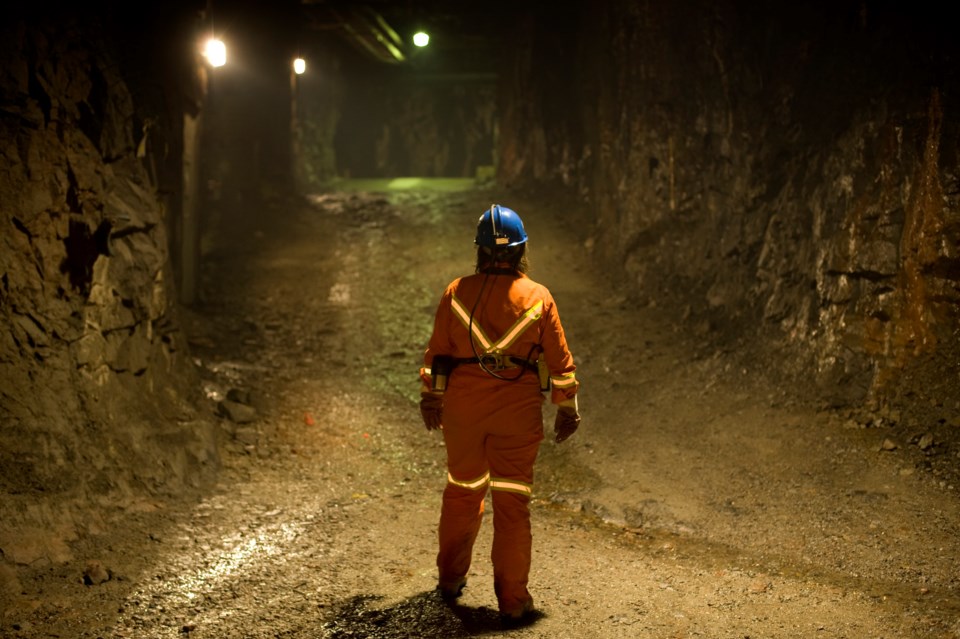To counter U.S. President Donald Trump’s tariffs, Premier David Eby has pledged to boost British Columbia’s economy by fast-tracking natural resource project approvals and making the province a mining powerhouse.
In her recent throne speech, B.C. Lt.-Gov. Wendy Lisogar-Cocchia was more specific, naming 18 projects for fast-tracking. This includes the Eskay Creek gold/silver project and the Red Chris gold and copper mine in B.C.'s northwest, and the Highland Valley Copper mine and Mount Milligan gold and copper mine in the south and central regions of the province.
But expediting permits for these projects is not enough. To boost resource development, the Eby government must address the negative perception among investors caused by uncertainty and inconsistency within B.C.'s regulatory regime.
For example, according to our annual survey of mining investors, which assesses jurisdictions based on mineral potential and government policies, four main policy factors deter investment in the province: uncertainty surrounding protected areas, disputed land claims, environmental regulations and the province's regulatory duplications and inconsistencies.
Investors have consistently identified this policies as investment deterrents in the last five surveys, undermining B.C.'s well-regarded geological potential. For instance, in the latest survey, 64 per cent of respondents for B.C. said that uncertainty surrounding disputed land claims was a deterrent to investment, compared to none in Idaho and Utah, and only nine per cent in Nevada and Montana. Consequently, B.C. now ranks 32nd out of 86 jurisdictions globally for its attractiveness on mining policy.
Why should British Columbians care?
Because less investment means less economic activity, fewer jobs and less prosperity. Investors require a predictable policy framework to plan timelines, costs, potential risks and make informed decisions about their investments. But recent policies introduced by the Eby government have further exacerbated regulatory uncertainty and unpredictability.
For example, mining permits.
In 2024, the Eby government suspended previously-issued mining rights in parts of B.C., effectively granting local First Nations the power to lift the suspensions. Clearly, this discretionary power to halt mining rights creates an unpredictable regulatory environment, discouraging investment in the sector.
Similarly, consider Eby’s new mineral staking rule for claiming land for mineral exploration. Under the previous system, miners in the province were automatically given exclusive rights to explore and develop land simply by registering a claim with the government. However, effective March 26, the government has stopped granting these claims automatically.
The new process will include consultations with First Nations to assess the potential effects of any claim on the land. This new rule adds more uncertainty and additional obstacles to mineral exploration—especially in locations with multiple Indigenous groups.
Investment in the mining sector is key to drive economic growth, create higher-paying jobs and opportunities for British Columbians, especially among First Nations and rural communities that benefit from mining activities.
Indeed, according to the latest available data from the Mining Association of B.C., in 2022 mining industry-related activities generated an estimated $18 billion in B.C., benefiting municipalities and First Nations across the province. The industry contributed approximately $3 billion in revenues across all government levels, according to Natural Resources Canada, while accounting for 37.8 per cent of B.C.’s exports in 2023, generating an estimated of $21 billion in exports earnings. Most importantly, 16,000 B.C. families rely on the mining sector for employment, with wages significantly above the average, according to Statistics Canada.
The Eby government’s plan to fast-track mining permit approvals is a step in the right direction, but it falls short of what’s needed to unlock the sector’s mineral potential. To attract investment and ensure long-term growth in the sector, the government must eliminate regulatory uncertainty and establish a more stable policy framework, with sensible regulation that protects the environment while encouraging economic activity.
Julio Mejia and Elmira Aliakbari are analysts at the Fraser Institute.



